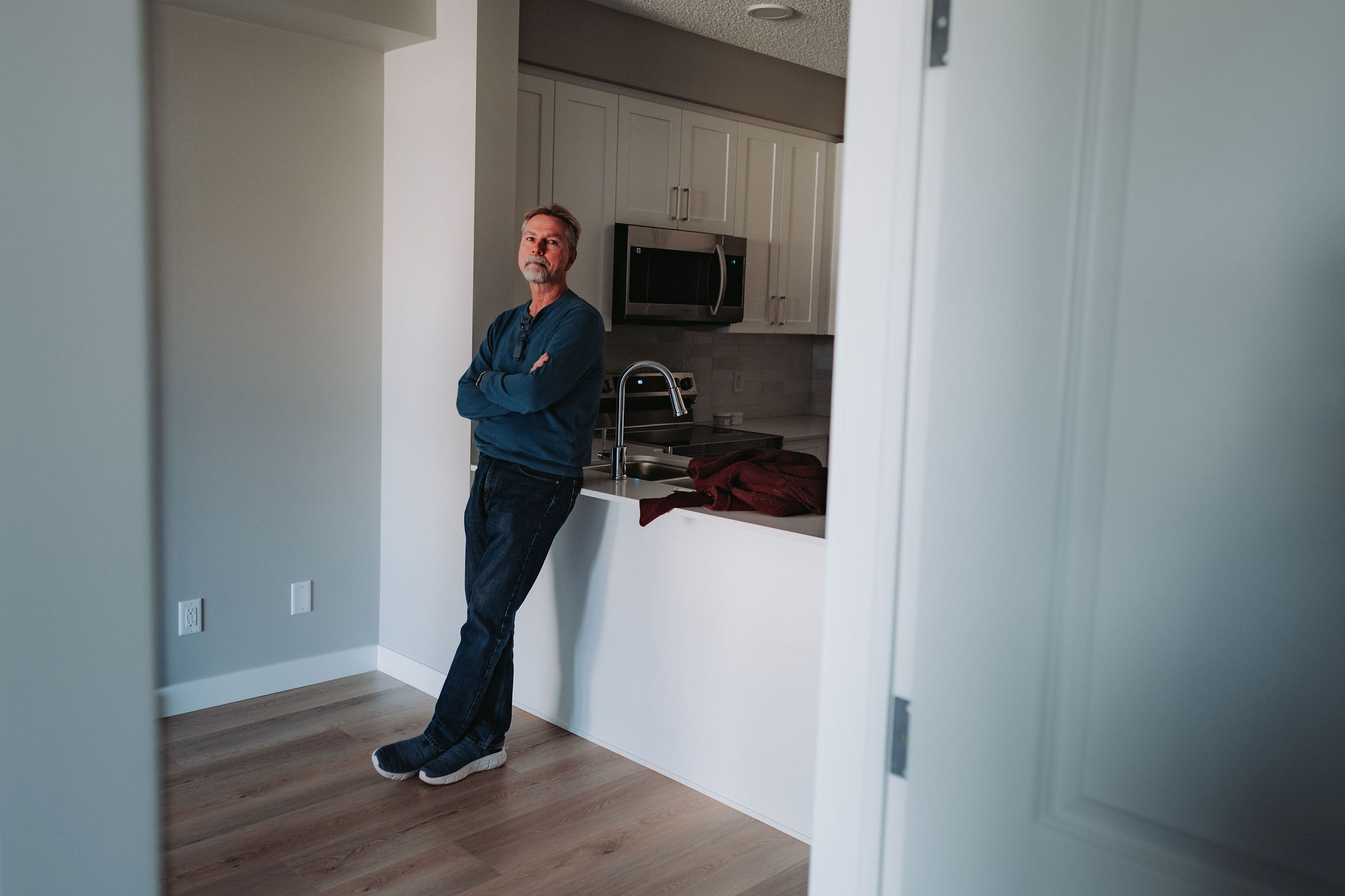This is one of 12 interviews conducted with various Edmontonians about their experience with the housing system. It has been edited for clarity and length. Read more about why and how Taproot embarked on this series.
Chris Tieland is a property manager with Realty Canada Inc., a provincially licensed, full-service property management company based in Edmonton. He manages about 160 properties. About 70 of the properties in his book are owned by single-property owners. The rest are owned by people with portfolios that range from two to 40 homes.
Can you tell us what role a property manager plays in the housing ecosystem?
I work entirely on the single-family side. I'm dealing with portfolio owners or just one-off owners. So they hire me to do all the day-to-day on their properties, place tenants, maintain their property, do the inspections, evict if necessary, (do) renovations if necessary. Pretty much a full meal deal as far as taking care of other people's properties.
How did you get into the housing?
I started out with a real estate course. Took my life savings, I think it was $20,000 at the time. I just left university because I was attempting a psychology degree at the time, because I've always liked to help people. But while you're raising four children and trying to do university, it was too hard on a family. So I took my life savings, bought an old dilapidated house, and went in there and banged my own nails and painted the walls, and probably tripled my money on that very first deal and never really looked back. Between 2003 and 2007, I did the same thing with multiple houses and hung on to a few rental properties at the same time. After 2008, I got out of real estate, went into selling insurance and securities, did that for several years, and then I got back into it about eight or nine years ago now.
What's the rental market like now?
With the housing market, the in-migration (into Alberta), isn't all that's driving up the rents. Interest rates, taxes, and insurance are some of the biggest drivers. I've pretty much had to increase my entire portfolio this year. There's been years where we've just stayed flat and not given out increases, other years there's been a small token increase, but this year, most increases are at that $100 mark or more. Most people get it, they understand, they don't like it, but everything's going up. They just want to know that you've gone to bat for them a little bit.
Anything over $2,000 a month, the people for the most part that apply have decent jobs, have decent credit, and so forth. Under that $2,000 mark, with all the in-migration coming in, it's challenging. Last week I had a townhouse. I put it on the market for $1,595, put it just on Facebook marketplace. I got 125 inquiries. Most of these people, I would say at least half, really don't understand the qualifying process. They'll have cash for you in hand, but they don't understand that we do a credit check, reference checks. They're coming in and they're supported by government, there's no way to see a credit check, there's no jobs. Half the time they're not even working yet. You know, you feel sorry for a lot of these people coming in because they just don't understand what it takes to get a good rental property. Your heart goes out to some of these people because, you know, they need a home, right? But I've been entrusted with most people's biggest investment in their life, and you know, you've got to kind of take that into account.
What about programs for the homeless?
We've tried a few of those, and again, it's my opinion most property management companies now are just flat out turning them down. What we're finding is these tenants are not getting enough day-to-day support. I've tried three of those, and all three of them went sideways, and the reason they went sideways … I can tell you no social worker's been in that house, because what I've seen in there, it turns out to be a mess. If a social worker was there, they'd be working with them on teaching them home skills. Even when you phone the social worker up and say, "Hey, I know you sent the money to your tenant to pay the rent, but it ain't coming to us." Something going on there, right? The support just isn't there, so soon as you run into trouble, they disappear. When you got to go back to your owner and say, "Hey, they're short two months' rent and they left a mess" well, he's not a happy customer.
And I understand these people. (When I was doing my psych degree) I actually worked out of a social agency downtown. So I understand that community down there and I absolutely loved working with those people. I know they start with teaching them how to fill out an application, but it has to go beyond that. The homework as far as getting people ready to rent is a lot, right? It's not just a quick sit-down.

Property manager Chris Tieland stands in an elevator in an apartment building in the Hudson neighbourhood in northwest Edmonton. (Jordon Hon)
Do you have any advice for people looking to rent?
Learn about your credit score, protect that, and get that straightened out. I trust the credit score way more than I do references, because references can be faked. And watch your pets. Be very cognizant, if you do decide to get a pet, of what you're getting. I'm not prejudiced against bulldogs or pit bulls or anything like that, but everyone else is, so you just limited your rental market by having those breeds of dog. Even cat versus dog, most owners would rather see a small dog than a cat. So, if you're going to be in the rental game, understand what owners are looking for.
How do you see yourself as a property manager?
I genuinely like people. I like being out there. Like meeting people all the time, I'm a pretty chatty guy, so it fits well. When I'm showing a house, for example, I'm running around with them, chatting them up, I find out way more about them than I even want to know sometimes. I enjoy that kind of stuff, and I really do enjoy meeting people and working with people.
I'm not your typical property manager. I'm not quick to evict. I'd rather sit down with you and say, "OK, you're behind this month, so how are we going to catch up?" Most people make an effort, right? They'll get caught up. They appreciate the break. They'd rather work with you than against you. If you just go in, being confrontational, you're going to get pushed back, and you'll never collect the money. You'll end up in a war kind of thing, and for me, I value my mental health, my peace of mind.
This interview was conducted on Sept. 12, 2024.


